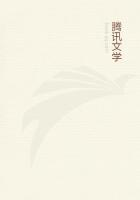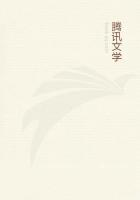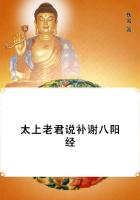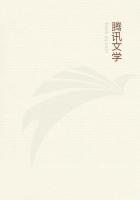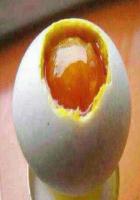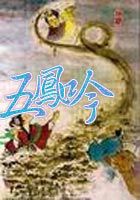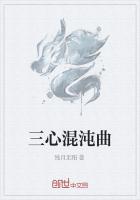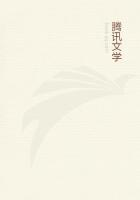TO INTRODUCE MR. PINKERTON.
The stranger, I have said, was some years older than myself: a man of a good stature, a very lively face, cordial, agitated manners, and a gray eye as active as a fowl's.
"May I have a word with you?" said I.
"My dear sir," he replied, "I don't know what it can be about, but you may have a hundred if you like."
"You have just left the side of a young lady," I continued, "towards whom I was led (very unintentionally) into the appearance of an offence. To speak to herself would be only to renew her embarrassment, and I seize the occasion of making my apology, and declaring my respect, to one of my own sex who is her friend, and perhaps," I added, with a bow, "her natural protector."
"You are a countryman of mine; I know it!" he cried: "I am sure of it by your delicacy to a lady. You do her no more than justice. I was introduced to her the other night at tea, in the apartment of some people, friends of mine; and meeting her again this morning, I could not do less than carry her easel for her. My dear sir, what is your name?"
I was disappointed to find he had so little bond with my young lady; and but that it was I who had sought the acquaintance, might have been tempted to retreat. At the same time, something in the stranger's eye engaged me.
"My name," said I, "is Loudon Dodd; I am a student of sculpture here from Muskegon."
"Of sculpture?" he cried, as though that would have been his last conjecture. "Mine is James Pinkerton; I am delighted to have the pleasure of your acquaintance."
"Pinkerton!" it was now my turn to exclaim. "Are you Broken-Stool Pinkerton?"
He admitted his identity with a laugh of boyish delight; and indeed any young man in the quarter might have been proud to own a sobriquet thus gallantly acquired.
In order to explain the name, I must here digress into a chapter of the history of manners in the nineteenth century, very well worth commemoration for its own sake. In some of the studios at that date, the hazing of new pupils was both barbarous and obscene. Two incidents, following one on the heels of the other tended to produce an advance in civilization by the means (as so commonly happens) of a passing appeal to savage standards. The first was the arrival of a little gentleman from Armenia. He had a fez upon his head and (what nobody counted on) a dagger in his pocket. The hazing was set about in the customary style, and, perhaps in virtue of the victim's head-gear, even more boisterously than usual. He bore it at first with an inviting patience; but upon one of the students proceeding to an unpardonable freedom, plucked out his knife and suddenly plunged it in the belly of the jester. This gentleman, I am pleased to say, passed months upon a bed of sickness, before he was in a position to resume his studies.
The second incident was that which had earned Pinkerton his reputation. In a crowded studio, while some very filthy brutalities were being practised on a trembling debutant, a tall, pale fellow sprang from his stool and (without the smallest preface or explanation) sang out, "All English and Americans to clear the shop!" Our race is brutal, but not filthy; and the summons was nobly responded to. Every Anglo-Saxon student seized his stool; in a moment the studio was full of bloody coxcombs, the French fleeing in disorder for the door, the victim liberated and amazed. In this feat of arms, both English -speaking nations covered themselves with glory; but I am proud to claim the author of the whole for an American, and a patriotic American at that, being the same gentleman who had subsequently to be held down in the bottom of a box during a performance of _L'Oncle Sam_, sobbing at intervals, "My country! O my country!" While yet another (my new acquaintance, Pinkerton) was supposed to have made the most conspicuous figure in the actual battle. At one blow, he had broken his own stool, and sent the largest of his opponents back foremost through what we used to call a "conscientious nude." It appears that, in the continuation of his flight, this fallen warrior issued on the boulevard still framed in the burst canvas.
It will be understood how much talk the incident aroused in the students' quarter, and that I was highly gratified to make the acquaintance of my famous countryman. It chanced I was to see more of the quixotic side of his character before the morning was done; for as we continued to stroll together, I found myself near the studio of a young Frenchman whose work I had promised to examine, and in the fashion of the quarter carried up Pinkerton along with me. Some of my comrades of this date were pretty obnoxious fellows. I could almost always admire and respect the grown-up practitioners of art in Paris; but many of those who were still in a state of pupilage were sorry specimens, so much so that I used often to wonder where the painters came from, and where the brutes of students went to. A similar mystery hangs over the intermediate stages of the medical profession, and must have perplexed the least observant. The ruffian, at least, whom I now carried Pinkerton to visit, was one of the most crapulous in the quarter. He turned out for our delectation a huge "crust" (as we used to call it) of St. Stephen, wallowing in red upon his belly in an exhausted receiver, and a crowd of Hebrews in blue, green, and yellow, pelting him--apparently with buns; and while we gazed upon this contrivance, regaled us with a piece of his own recent biography, of which his mind was still very full, and which he seemed to fancy, represented him in a heroic posture. I was one of those cosmopolitan Americans, who accept the world (whether at home or abroad) as they find it, and whose favourite part is that of the spectator; yet even I was listening with ill-suppressed disgust, when I was aware of a violent plucking at my sleeve.
"Is he saying he kicked her down stairs?" asked Pinkerton, white as St. Stephen.

